So we now head back towards the hill and the brilliant use of it that really comes into play on the 8th. In reality, the hill is 2 small hills, or a larger one that is split in two, depending on how you look at it. Pay special attention to how MacKenzie and Hunter routed the holes around this simple feature. We start with the 452 yd par 4 7th.
"A first class architect attempts to give the impression that everything has been done by nature and nothing by himself, where as a contractor tries to make as big a splash as possible and impress committees with the amount of labor and material he has put into the job."- Alister MacKenzie
The tee shot
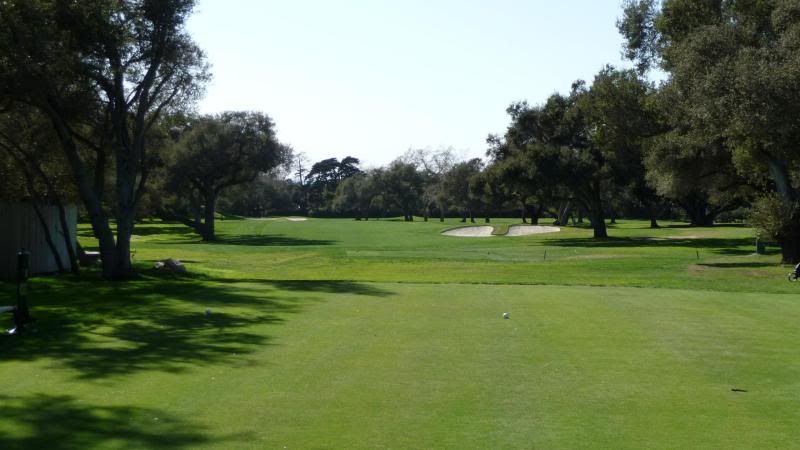
A little closer
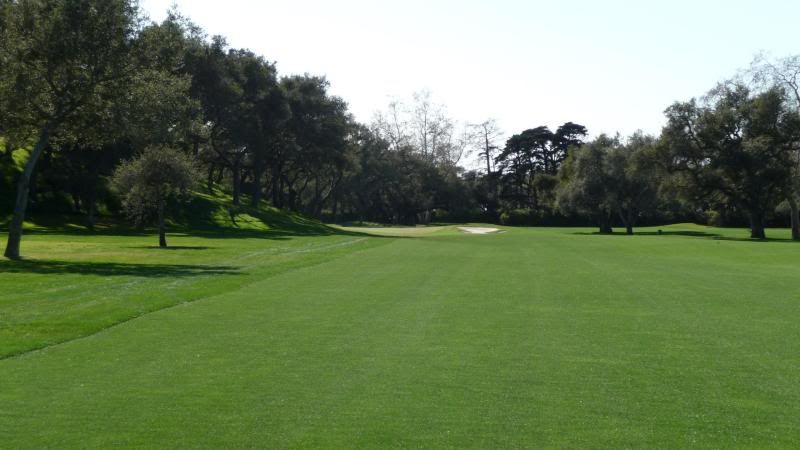
The approach
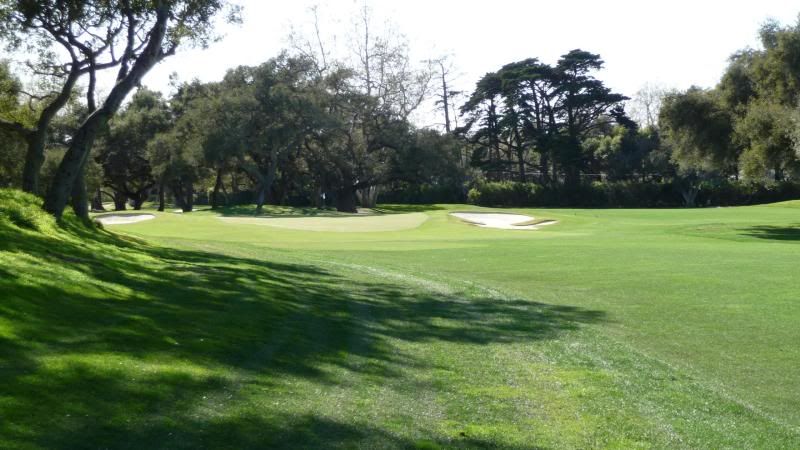
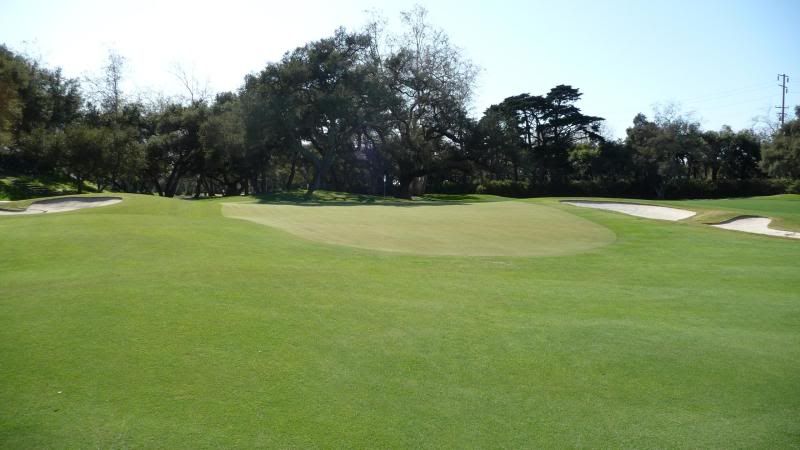
The green from the 5th fw
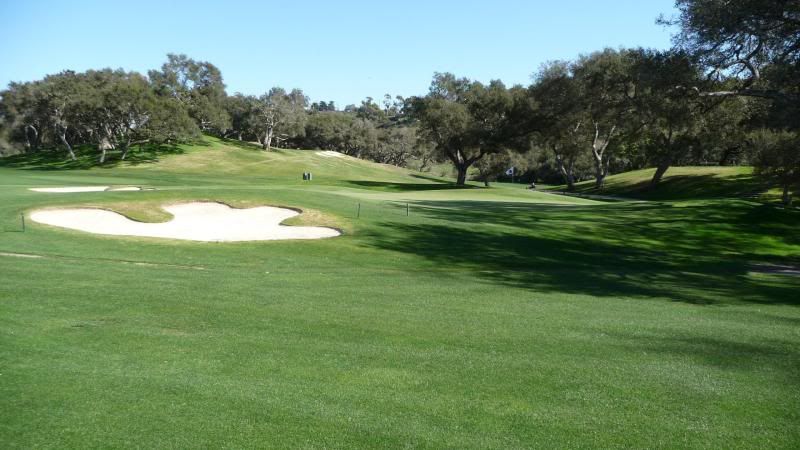
Looking back down the fw..
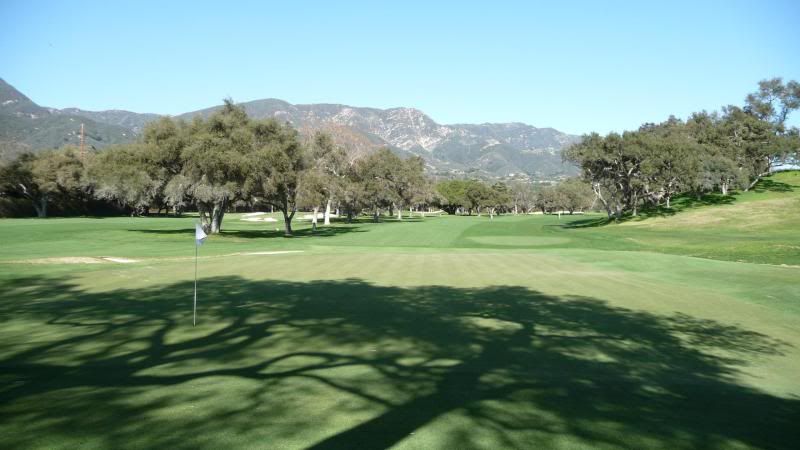
From the 8th tee
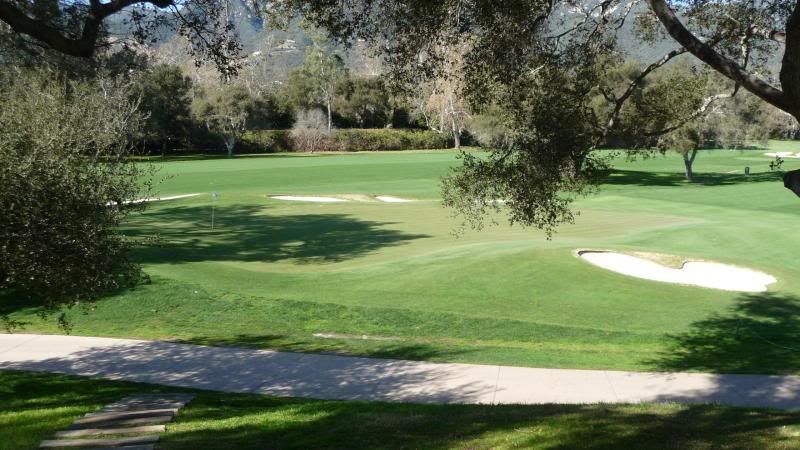
We now come to the 152 yd par 3 8th, where we play from "hill to hill" with the split mentioned earlier dividing us on the tee from the green.
The tee
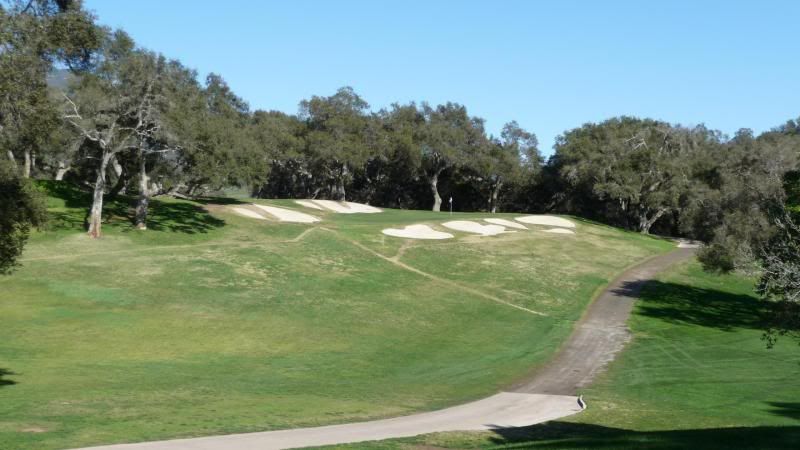
Closer
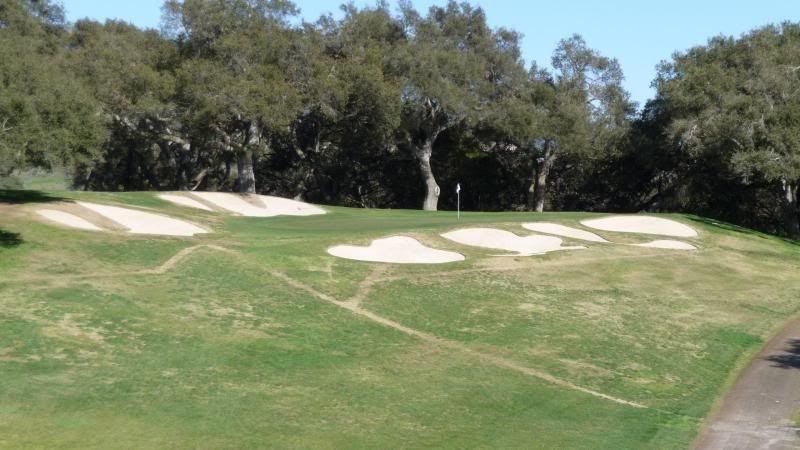
An vintage photo..
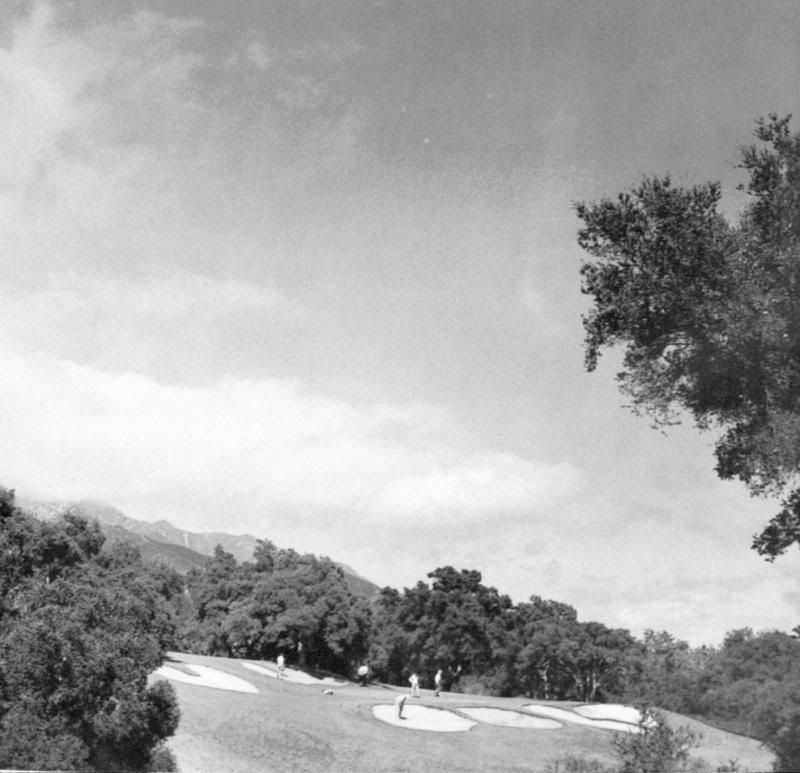
The green from the front
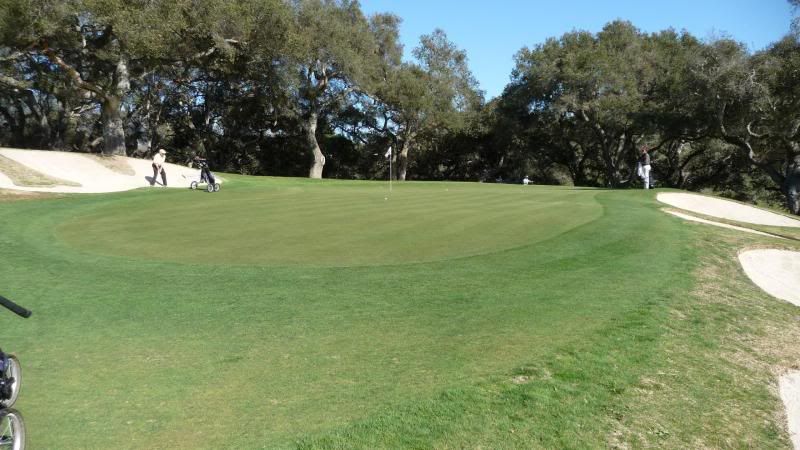
From behind
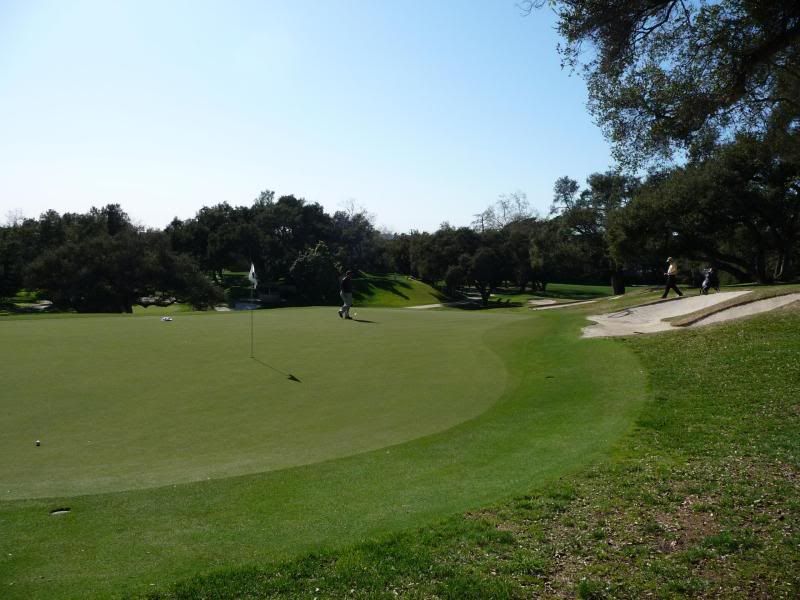
From the side
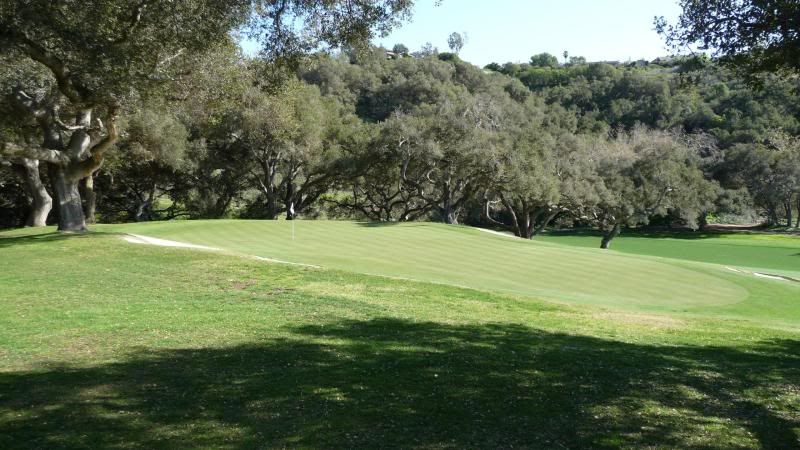
We now leave the hill top and turn for Picay Creek. The 431 yd par 4 9th.
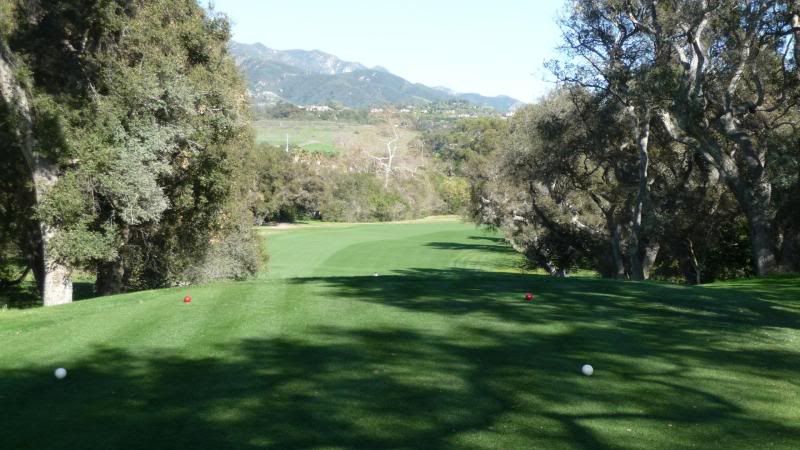
The approach
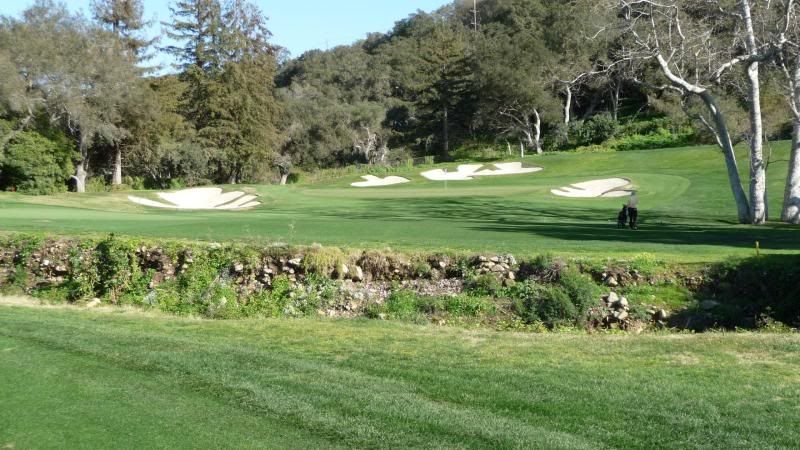
Looking back
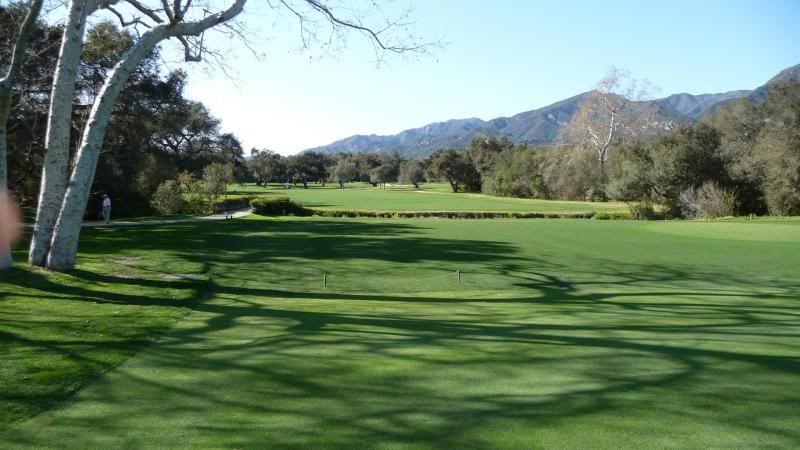
Greenside
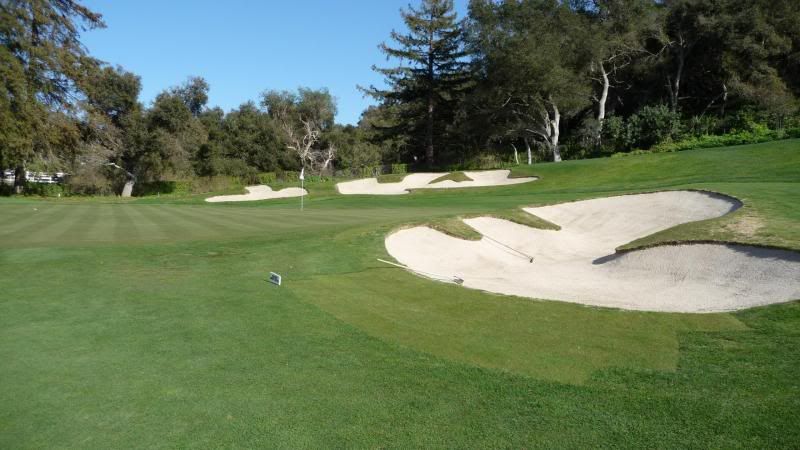
From behind the green
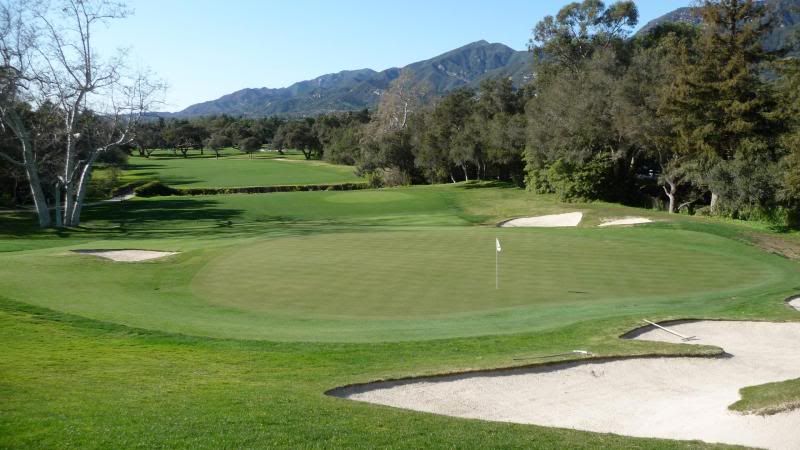
The 10th hole this day was played a par 4, as the club is experimenting to see if it works. It really works better as a par 5. The hole is 478, but plays as long as 485 yds all the way back. This is also the hole that has been referred to by others as the "landslide" hole, as there was a landslide from the hill on the left and it slid across the fw. Rather than trying to move the earth, it was decided to incoporate it into the hole and it was grassed.
The tee shot..
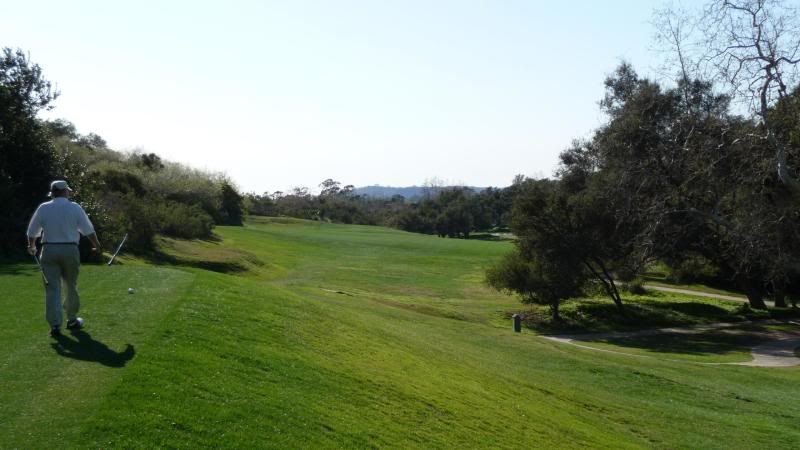
The "slide"
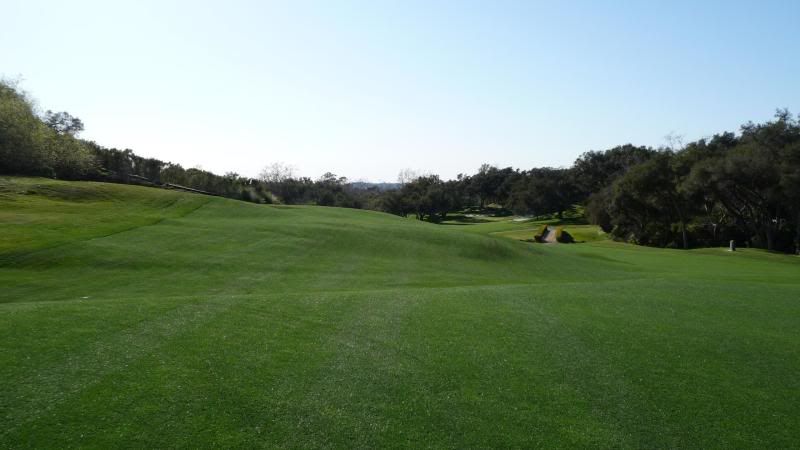
From the top
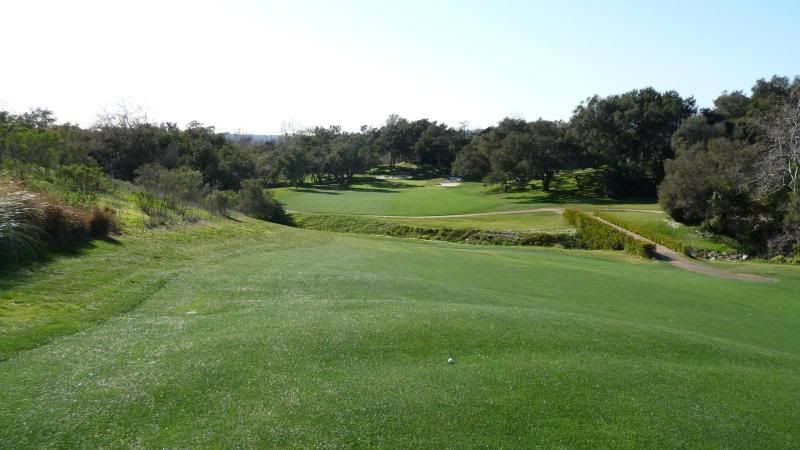
Closer
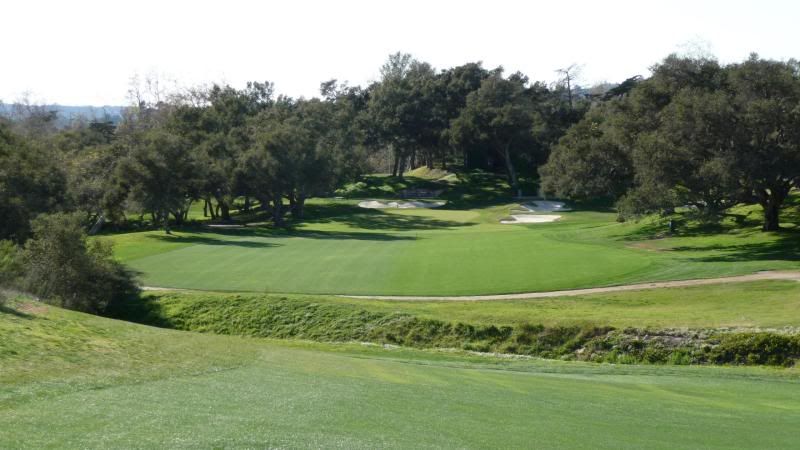
The greensite
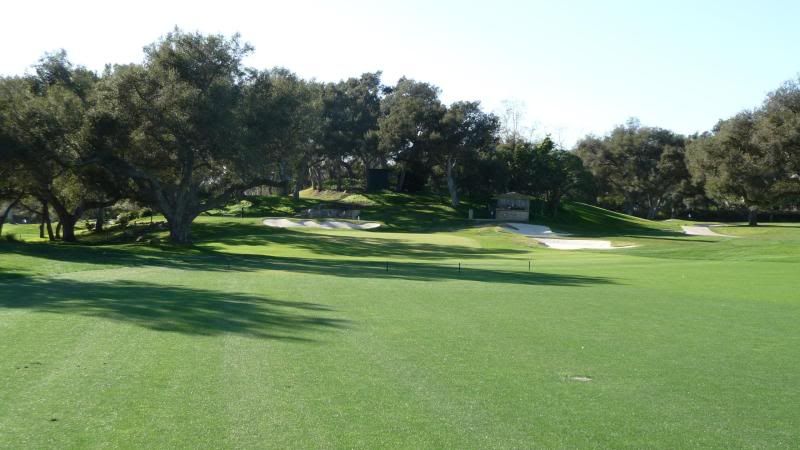
Looking back
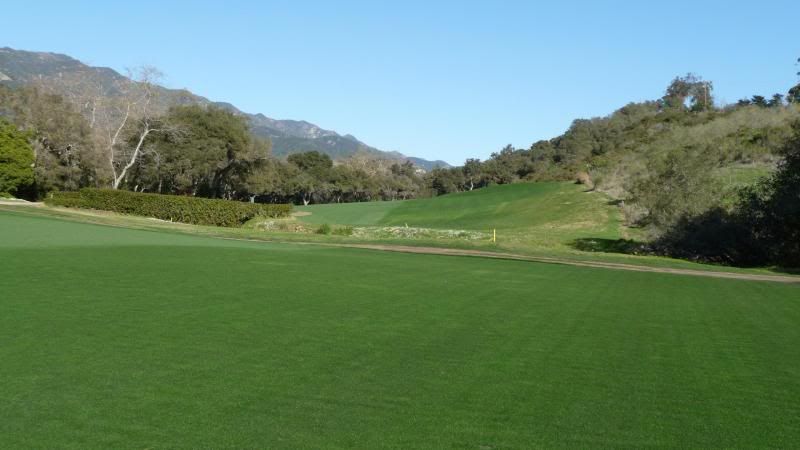
From behind the green
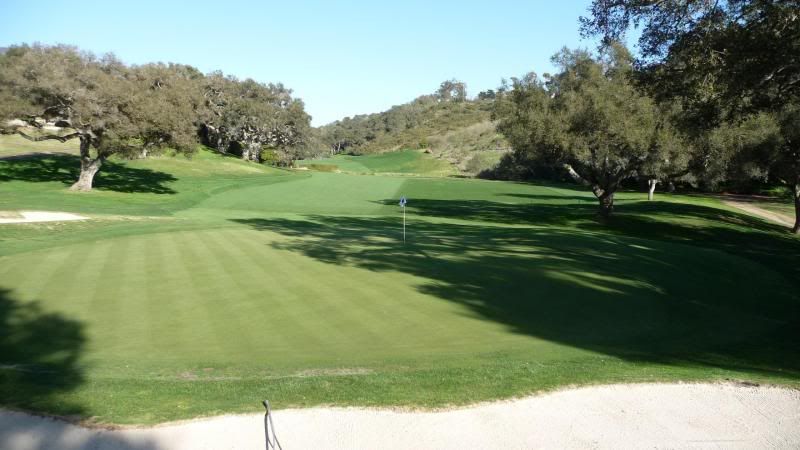
The beautiful 177 yd par 3 11th.
"All artificial hazards should be made to fit into the ground as if placed there by nature. To accomplish this is a great art. Indeed, when it is really well done, it is- I think it may truly be said- a fine art, worthy of the hand of a gifted sculptor. They should have the appearance of being made with the same carelessness and abandon with which a brook tears down the banks which confine it, or the wind tosses about the sand of the dunes."- Robert Hunter
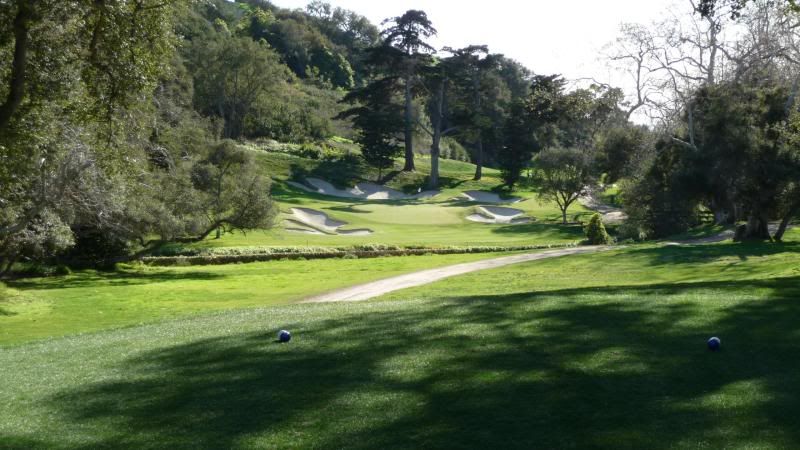
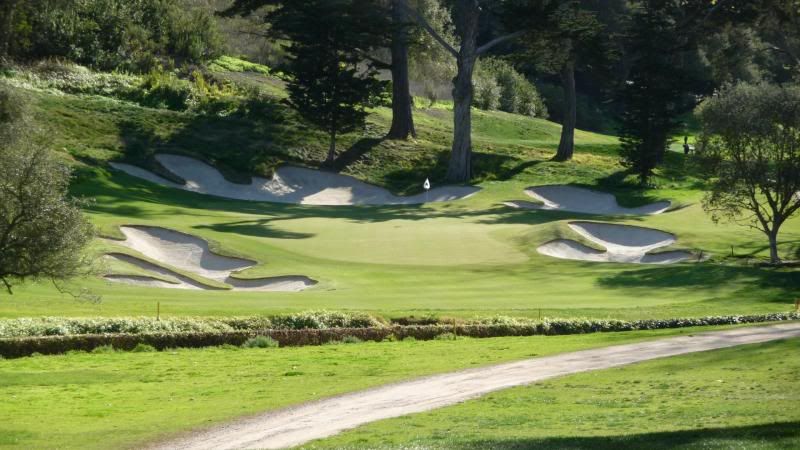
An old photo for comparison
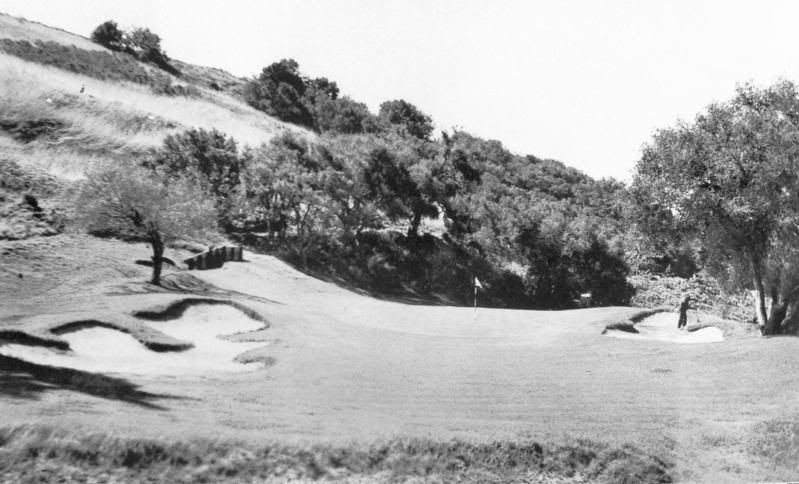
Looking back
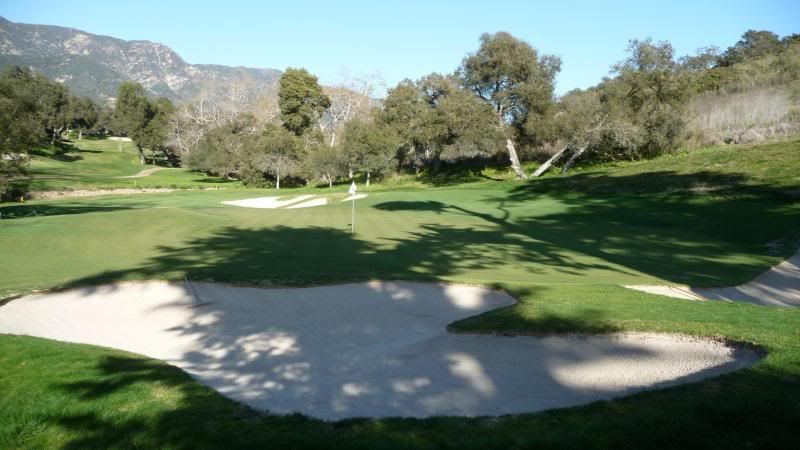
A photo from 1943 during the Victory Garden era and prior to Bell's restoration
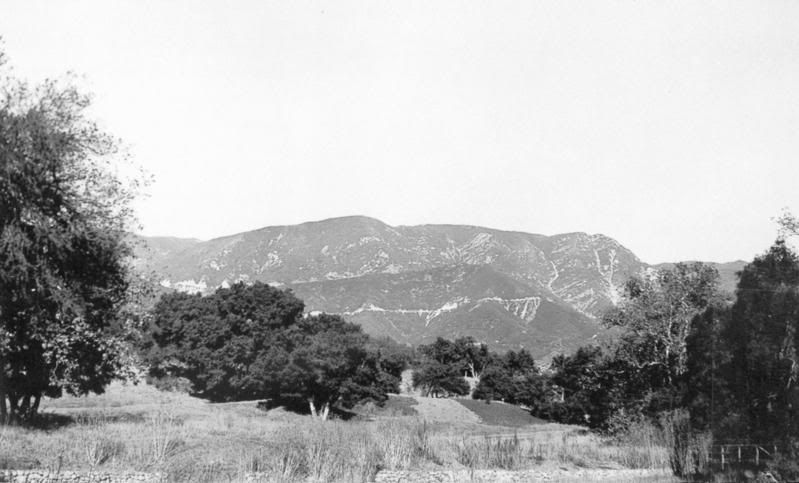
We conclude part 2 with the 351 yd par 4 12th.
The tee shot
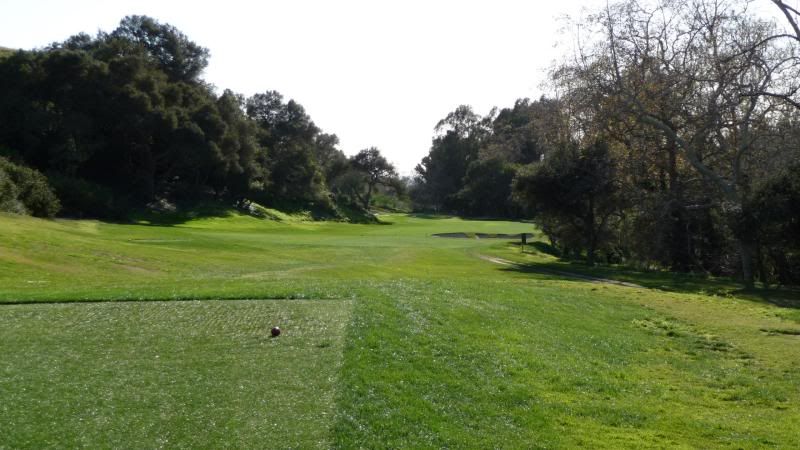
A little closer
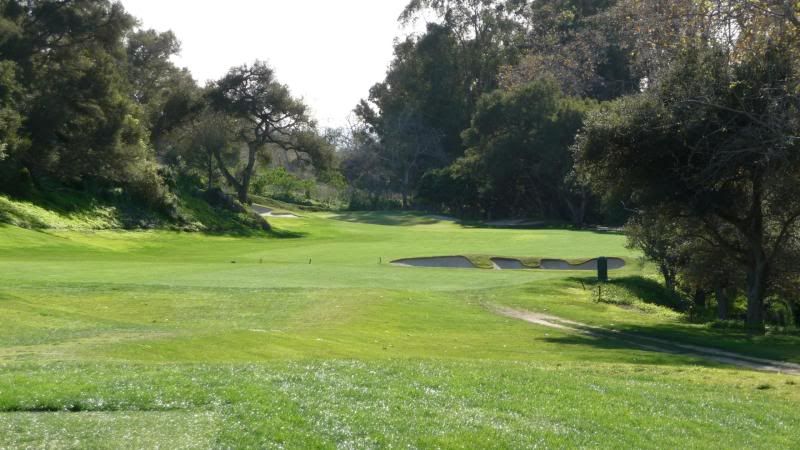
The strategic bunker
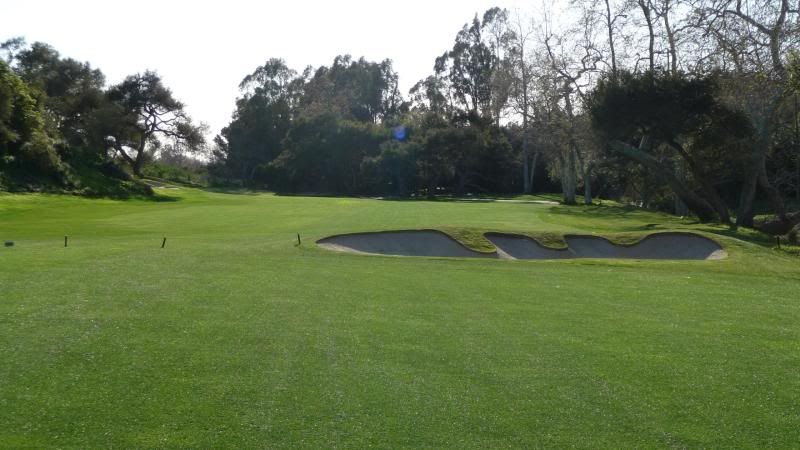
The greensite
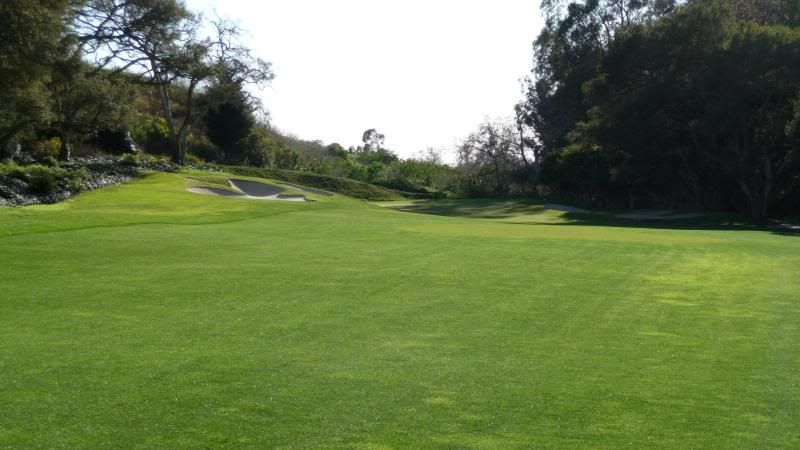
The green is amongst the smallest on the course, if not the smallest
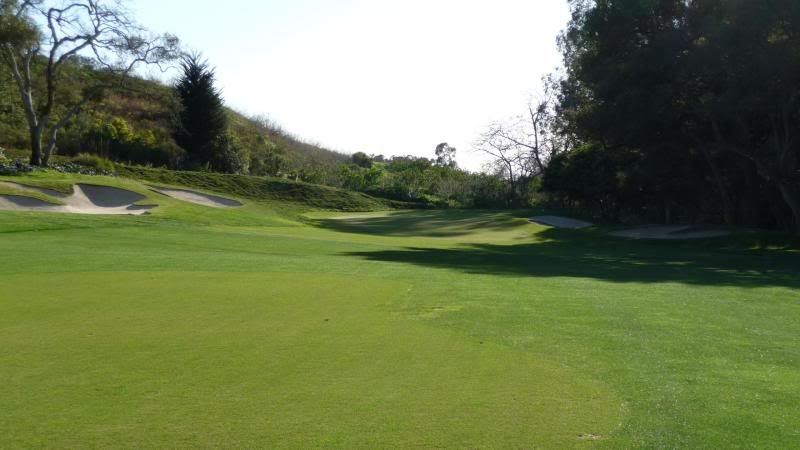
We'll conclude this presentation in part 3 by crossing over Sheffield again over to the West side and finish the course as the sun sets.